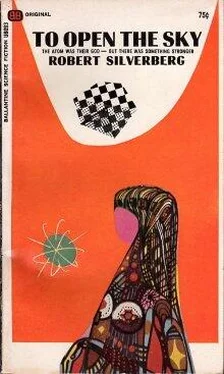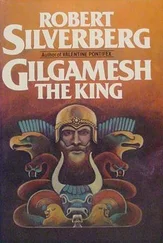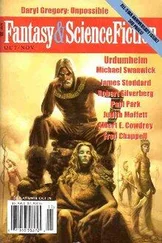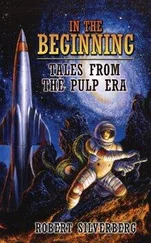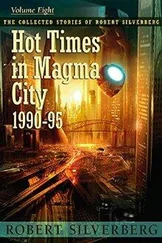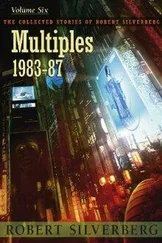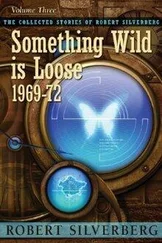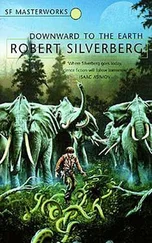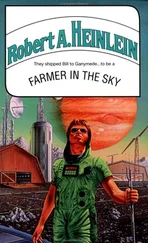Robert Silverberg - To Open the Sky
Здесь есть возможность читать онлайн «Robert Silverberg - To Open the Sky» весь текст электронной книги совершенно бесплатно (целиком полную версию без сокращений). В некоторых случаях можно слушать аудио, скачать через торрент в формате fb2 и присутствует краткое содержание. Год выпуска: 1967, Издательство: Ballantine Books, Жанр: Фантастика и фэнтези, на английском языке. Описание произведения, (предисловие) а так же отзывы посетителей доступны на портале библиотеки ЛибКат.
- Название:To Open the Sky
- Автор:
- Издательство:Ballantine Books
- Жанр:
- Год:1967
- ISBN:нет данных
- Рейтинг книги:5 / 5. Голосов: 1
-
Избранное:Добавить в избранное
- Отзывы:
-
Ваша оценка:
- 100
- 1
- 2
- 3
- 4
- 5
To Open the Sky: краткое содержание, описание и аннотация
Предлагаем к чтению аннотацию, описание, краткое содержание или предисловие (зависит от того, что написал сам автор книги «To Open the Sky»). Если вы не нашли необходимую информацию о книге — напишите в комментариях, мы постараемся отыскать её.
To Open the Sky — читать онлайн бесплатно полную книгу (весь текст) целиком
Ниже представлен текст книги, разбитый по страницам. Система сохранения места последней прочитанной страницы, позволяет с удобством читать онлайн бесплатно книгу «To Open the Sky», без необходимости каждый раз заново искать на чём Вы остановились. Поставьте закладку, и сможете в любой момент перейти на страницу, на которой закончили чтение.
Интервал:
Закладка:
“Not yet, Delphine. Do you ever think of yourself as insane? In the difficult moments, the moments when you start ranging along the time-line and don’t think you’ll ever get back to now?”
“It’s pretty scary sometimes.”
“But you get back. That’s the miraculous thing. You know how many floaters I’ve seen burn out?” Vorst asked. “Hundreds. I’d have burned out myself, except that I’m a lousy precog. Back then, though, I kept breaking loose, drifting along the time-line. I saw the whole Brotherhood spread out before me. Call it a vision, call it a dream. I saw it, Delphine. Blurred around the edges.”
“Just as you told it in your book?”
“More or less,” said the Founder. “The years between 2055 and 2063—those were the years I had the visions worst. When I was thirty-five, it started. I was just an ordinary technician, a nobody, and then I got what could be called divine inspiration, except all it was was a peek at my own future. I thought I was going crazy. Later I understood.”
The esper was silent. Vorst shuttered his eyes. The memories glowed in him: after years of internal chaos and collapse he had come from the crucible of madness purified, aware of his purpose. He saw how he could reshape the world. More than that, he saw how he had reshaped the world. After that it was just a matter of making the beginning, of founding the first chapels, dreaming up the rituals of the cult, surrounding himself with the scientific talent necessary to realize his goals. Was there a touch of paranoia in his purpose, a bit of Hitler, a tinge of Napoleon, a tincture of Genghis Khan? Perhaps. Vorst complacently viewed himself as a fanatic and even as a megalomaniac. But a cool, rational megalomanic, and a successful one. He had been willing to stop at nothing to gain his ends, and he was just enough of a precog to know that he was going to gain them.
He said, “It’s a big responsibility, setting out to transform the world. A man has to be a little daft to attempt it or even to think he can attempt it. But it helps to know what the outcome must be. One doesn’t feel so idiotic, knowing that he’s simply acting out the inevitable.”
“It takes the challenge out of life,” said the esper.
“Ah, Delphine, you touch the gaping wound! But you’d know, of course. How dreary it is to be playing out your own script, aware of what’s ahead. At least I’ve had the mercy of uncertainty in the small things. I can’t see very much myself, so I have to hitchhike with floaters like you, and the visions aren’t clear. But you see clearly, don’t you, Delphine? You’ve been along your own world-line. Have you seen your own burnout yet, Delphine?”
The esper’s cheeks colored. She looked at the floor and did not answer.
“I’m sorry, Delphine,” Vorst said. “I had no right to ask that. I retract it. Turn on for me, Deiphine. Do your trick. Take me along. I’ve said too much today.”
Shyly, the girl composed herself for her great effort. She had more control than most of her kind, Vorst knew. Whereas most of the precogs eventually slipped their moorings, Deiphine had clung to her powers and her life and had reached what was, for her kind of esper, a ripe old age. She would burn out, too, one day, when she overreached herself. But up to now she had been invaluable to Vorst, his crystal ball, the most helpful of all the floaters who had aided him in plotting his course. And if she could hold out just a while longer, until he saw his route past the final obstacles, the long journey would end and they both could rest.
She released her grip on the present and moved into that realm where all moments are now.
Vorst watched and waited and felt the girl taking him along as she began her time-shuttling. He could not initiate the journey himself, but he could follow. Mists enfolded him, and he swung dizzily along the line of time, as he had done so often before. He saw himself, here and here and here, and saw others, shadow-figures, dream-figures, lurking behind the curtains of time.
Lazarus? Yes, Lazarus was there. Kirby, too. Mondschein. All of them, the pawns in the game. Vorst saw the glow of otherness and looked out upon a landscape that was neither Earth nor Mars nor Venus. He trembled. He looked up at a tree eight hundred feet high, with a corona of azure leaves against a foggy sky. Then he was ripped away, and hurled into the stinking confusion of a rain-spattered city street, and stood before one of his early chapels. The building was on fire in the rain, and the smell of scorched wet wood assailed his nostrils. And then, smiling into the stunned, parched face of Reynolds Kirby. And then—
The sense of motion left him. He slipped back into his own matrix of time, making the adrenal adjustments that compensated for his exertions. The floater lay slumped in her chair, sweat-flecked, dazed. Vorst summoned an acolyte.
“Take her to her ward,” he said. “Have them work on her until she comes back to her strength.”
The acolyte nodded and lifted the girl. Vorst sat motionless until they were gone. He was satisfied with the session. It had confirmed his own intuitive ideas of his immediate direction, and that was always comforting.
“Send me Capodimonte,” Vorst said into the communicator.
The chubby blue-robed figure entered a few minutes later. When Vorst was in Santa Fe, one did not waste time in getting to his quarters after a summons. Capodimonte was the District Supervisor for the Santa Fe region, and was customarily in charge here except when such figures as Vorst or Kirby were in residence. Capodimonte was stolid, loyal, useful. Vorst trusted him for delicate assignments. They exchanged quick, casual benedictions now.
Then Vorst said, “Capo, how long would it take you to pick the personnel for an interstellar expedition?”
“Inter—”
“Say, for departure later this year. Run the specs off at Archives and get together a few possible teams.”
Capodimonte had recovered his aplomb. “What size teams?”
All sizes. From two persons to about a dozen. Start with an Adamand-Eve pair, and work up to, say, six couples. Matched for health, adaptability, compatibility, skills, and fertility.”
“Espers?”
“With caution. You can throw in a couple of empaths, a couple of healers. Stay away from the exotics, though. And remember that these people are supposed to be pioneers. They’ve got to be flexible. We can do without geniuses on this trip, Capo.”
“You want me to report to you or to Kirby when I’ve made the lists?”
“To me, Capo. I don’t want you to utter a syllable about this to Kirby or anyone else. Just get in there and run off the groups as we’ve already programmed them. I’m not sure what size expedition we’ll be sending, and I want to have a group ready that’ll be self-sufficient at any level—two, four, eight, whatever it turns out to be. Take two or three days. When you’ve done that, put hail a dozen of your best men to work on the logistics of the trip. Assume an esper-powered capsule and go over the optimum designs. We’ve had decades to plan it; we must have a whole arsenal full of blueprints. Look them over. This is your baby,
Capo.”
“Sir? One subversive question, please?”
“Ask it.”
“Is this a hypothetical exercise I’m doing, or is this the real thing?”
“I don’t know,” said Vorst.
four
The blue face of a Venusian looked out of the screen, alien and forbidding, but its owner had been born an Earthman, and the terrestrial heritage betrayed itself in the shape of the skull, the set of the lips, the thrust of the chin. The face was that of David Lazarus, founder and resurrected head of the cult of Transcendent Harmony. Vorst had conferred often with Lazarus in the twelve years since the arch-heresiarch’s resurrection. And always the two prophets had allowed themselves the luxury of full visual contact. It was monumentally expensive to bounce not only voices but images down the chain of relay stations that led from Venus to Earth, but expense meant little to these men, Vorst insisted. He liked to see Lazarus’s transformed face as they spoke. It gave him something to focus on during the long, dull time-lags in their conversations. Even at the speed of light it took a while for a message to get from planet to planet. Even a simple exchange of views required more than an hour.
Читать дальшеИнтервал:
Закладка:
Похожие книги на «To Open the Sky»
Представляем Вашему вниманию похожие книги на «To Open the Sky» списком для выбора. Мы отобрали схожую по названию и смыслу литературу в надежде предоставить читателям больше вариантов отыскать новые, интересные, ещё непрочитанные произведения.
Обсуждение, отзывы о книге «To Open the Sky» и просто собственные мнения читателей. Оставьте ваши комментарии, напишите, что Вы думаете о произведении, его смысле или главных героях. Укажите что конкретно понравилось, а что нет, и почему Вы так считаете.
